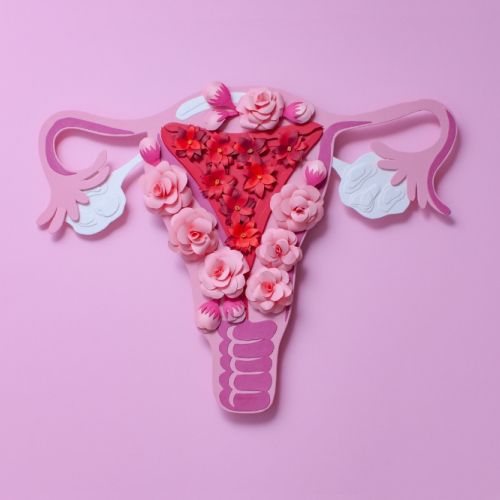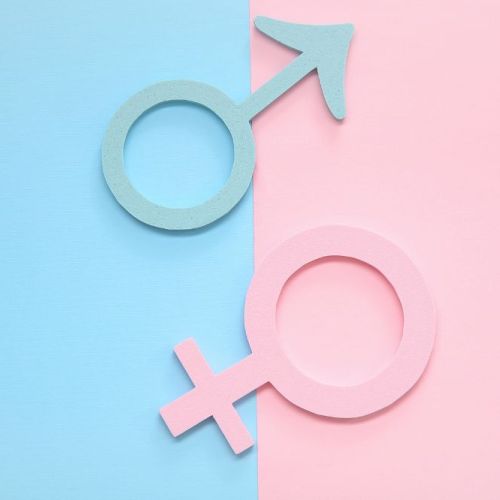Benefits of Egg Donation

If you’re struggling with infertility, and in vitro fertilization is not an option or hasn’t worked, egg donation may be the next best step. At California Center for Reproductive Health, our experienced team of fertility specialists can help you determine if egg donation is right for you and your family.
We understand that infertility treatments can take a toll on you physically and mentally. Know that egg donation is associated with the highest pregnancy rates of all fertility care, so if you do decide to go with this option, you have a good chance of successfully adding to your family. Up to 48% of women who go forward with egg donation become pregnant.
In addition to a great rate of success, egg donation affords several benefits to the intended parents and the woman donating.
Benefits for families trying to conceive
Male couples hoping to add to their family and women with certain conditions benefit from egg donation. If a woman has had multiple failed IVF procedures, has been diagnosed with premature ovarian failure, has diminished ovarian reserve or poor quality eggs, or has genetically transmitted diseases that could be passed on to a child, we may recommend egg donation as a fertility treatment.
Women older than 40 often benefit from egg donation because older eggs are less likely to result in an embryo and are more likely to carry genetic anomalies.
You get to choose the characteristics you want in an egg donor. You can opt for someone you know, like a family member, or have it be someone anonymous. We screen the donor for any hereditary diseases that could be passed down to a baby, any sexually transmitted diseases, past health concerns, and psychological stability. You’ll be assured that you’re receiving the healthiest egg possible, which gives you the best chance of having a baby.
Egg donation still means that you, the intended mother, carry the baby in your womb. The donated egg is combined with the father’s sperm in a lab to create a viable embryo. This embryo is then placed into your uterus. The intended mother follows a protocol of hormone medications to properly prepare her womb prior to the embryo placement.
Benefits for the donors
Egg donation is a true gift to a family struggling to conceive. You can be assured that if you qualify for donation and successfully provide eggs, you are doing a tremendous service to a couple who desperately needs you.
You’ll also be financially rewarded for your donation as well. You may receive $5,000-$10,000 per cycle, depending on your eligibility and history with us. Plus, you receive fertility diagnostic testing, routine gynecological screening, and genetic screenings, all at no expense to you. If you plan on having children of your own in the future, this information is invaluable.
Deciding to undergo egg donation — as a donor or recipient — is a big step. Our team at California Center for Reproductive Health can answer your questions and present your options when it comes to infertility treatments.
Call our nearest California office in Encino, Valencia, Alhambra, or West Hollywood, or use this website to request a consultation. Our compassionate staff works with you to determine the best way to overcome infertility and create your family.
Eliran Mor, MD
Reproductive Endocrinologist located in Encino, Valencia & West Hollywood, CA
FAQ
What does a reproductive endocrinologist and infertility specialist do?
Reproductive endocrinology and Infertility is a sub-specialty of Obstetrics and Gynecology. In addition to managing medical and surgical treatment of disorders of the female reproductive tract, reproductive endocrinologist and infertility (REI) specialists undergo additional years of training to provide fertility treatments using assisted reproductive technology (ART) such as in vitro fertilization.
Reproductive endocrinologists receive board certification by the American Board of Obstetrics and Gynecology in both Obstetrics and Gynecology and Reproductive Endocrinology and Infertility.
When should I see an REI specialist?
In general, patients should consider consulting with an REI specialist after one year of trying unsuccessfully to achieve pregnancy. The chance of conceiving every month is around 20%, therefore after a full year of trying approximately 15% of couples will still not have achieved a pregnancy.
However, if a woman is over the age of 35 it would be reasonable to see a fertility specialist earlier, typically after 6 months of trying.
Other candidates to seek earlier treatment are women who have irregular menses, endometriosis, fibroids, polycystic ovary syndrome (PCOS), women who have had 2 or more miscarriages, or problems with the fallopian tubes (prior ectopic pregnancy).
What are the reasons we are having trouble conceiving?
Approximately 1/3 of the time cause for infertility is a female factor, 1/3 of the time a male factor, and the remaining 1/3 a couples’ factor.
At CCRH, we emphasize the importance of establishing a correct diagnosis. Both partners undergo a comprehensive evaluation including a medical history and physical exam.
Furthremore, the woman’s ovarian reserve is assessed with a pelvic ultrasound and a hormonal profile. A hysterosalpingogram (HSG) will confirm fallopian tube patency and the uterine cavity is free of intracavitary lesions. A semen analysis is also obtained to evaluate for concentration, motility, and morphology of the sperm.
Additional work up is then individualized to direct the best possible treatment option for each couple.
What is IVF? What is the process like?
In vitro fertilization (IVF) is the process that involves fertilization of an egg outside of a woman’s body.
The process starts with fertility drugs prescribed to help stimulate egg development. In your natural cycle, your body is only able to grow one dominant egg, but with stimulation medication we can recruit multiple eggs to continue to grow. After about 8-10 days of stimulation, the eggs are surgically retrieved and then fertilized with sperm in a specialized laboratory. Fertilized eggs are then cultured under a strictly controlled environment within specialized incubators in the IVF laboratory for 3-5 days while they develop as embryos. Finally, embryos (or an embryo) are transferred into the uterine cavity for implantation.
Should I have IVF?
Before deciding if IVF is the right choice, it’s important to sit down with an REI specialist to discuss available treatment options. For some people, other methods such as fertility drugs, intrauterine insemination (IUI) may be the best first choice treatment. At CCRH, we believe each individual couple is unique and not everyone needs IVF.
Is the IVF procedure painful?
While not painful, the fertility medications may some side effects including headaches, hot flashes, mood swings, and bloating. The injection sites may also bruise.
Will IVF guarantee a baby?
Unfortunately, no. Many people think once they start IVF it’s a matter of time that they will be pregnant and have a baby. But according to national statistics per the Society of Assisted Reproduction (SART), on average 40% of assisted reproduction cycles achieve live births in women under age 35. The chances of success then continue to decrease with advancing age.
At CCRH, we employ only evidence-based interventions to ensure patient safety and optimal outcome. While we cannot guarantee a baby, we guarantee that you will receive the best, most advanced, personalized care to help you maximize your chance of a baby.
What is the success rate for IVF?
The average IVF success rate (success measured in live birth rate) using one’s own eggs begins to drop around age 35 and then rapidly after age 40. This is due to the decline in egg quantity and egg quality as a woman ages.
Our clinic’s success rate consistently beats the national average year after year.
Do insurance plans cover infertility treatment? How much does IVF cost?
Individual insurance plans often do not have any coverage for infertility treatments. If you have a group plan, you can call members services to see if they have coverage for infertility (including consultation/workup and IVF).
After your consultation with our REI specialist, one of our dedicated account managers with sit with you to go over the cost of treatment.




